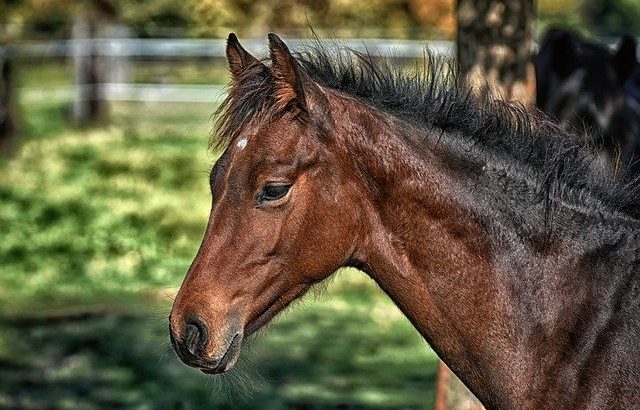Equine Veterinarians: An Introduction to This Specialized Profession
When researching the different career paths available in veterinary medicine, you may come across equine veterinarians. While not as common as companion veterinarians, equine veterinarians play an important role in treating and caring for animals. With a Doctorate in Veterinary Medicine (DVM), they typically have at least four years of formal education. Considering that all veterinarians have a DVM, though, you might be wondering what makes equine veterinarians unique.
What Is an Equine Veterinarian?
An equine veterinarian is a trained and licensed animal healthcare professional who specializes in the wellbeing of horses. There are currently over 9 million horses in the United States. Some people own these majestic equine animals to ride, whereas others own them for work-related purposes, such as corralling cattle or tending a ranch. Equine veterinarians are simply veterinarians who seek to diagnose, treat and prevent medical conditions in horses.
Equine Veterinarian vs Companion Veterinarian: What’s the Difference?
Equine veterinarians aren’t the same as companion veterinarians. The most common type of veterinary profession, a companion veterinarian is a licensed and trained animal healthcare professional who provides services to a variety of small pets, including dogs, cats, rabbits, guinea pigs and reptiles. They don’t specialize in any single type of animal. Rather, companion veterinarians offer services to all types of small pets, which are colloquially known as companion animals. Equine veterinarians, on the other hand, specialize in horses.
According to the American Veterinary Medical Association (AMVA), two in three private veterinary clinics in the United States are companion animal exclusive. In comparison, only 5% are private veterinary clinics in the United States offer equine services.
Duties and Responsibilities of Equine Veterinarians
Equine veterinarians have many of the same duties and responsibilities as their companion animal counterparts, except they specialize in horses. Horses, of course, are anatomically different than companion animals. Therefore, veterinarians must receive specialized training to properly care for them.
Equine veterinarians are capable of treating physical injuries in horses. Horses regularly suffer from soft tissues, such as pulled muscles and torn ligaments. Depending on the extent of the injury, it may take anywhere from a few weeks to a year to heal. Equine veterinarians can treat physical injuries so that horses heal more quickly and without succumbing to complications.
Like many other animals, horses are susceptible to infectious diseases. Equine veterinarians, however, can protect them from otherwise infection-causing diseases through vaccination. There are vaccines available to protect against a myriad of diseases in horses, some of which include the West Nile virus, rabies, equine encephalomyelitis and even influenza, all of which can be administered by an equine veterinarian.
When severely sick or injured, a horse may require surgery — which is another duty carried on the shoulders of equine veterinarians. Most equine veterinarians, however, perform house calls. Owners can’t easily transport horses to a local veterinary clinic, so they’ll typically call to request a house call from an equine veterinarian. The equine veterinarian will visit the client’s home — or other property where the owner’s horse is located — to provide onsite medical treatment. Some equine veterinarians may still work out of a clinic, but they’ll spend a large portion of time at clients’ homes and properties.

Education Requirements for Equine Veterinarians
Because equine veterinarians are licensed veterinarians, you must earn a DVM to become one. A DVM is a four-year degree program that typically follows a Bachelor’s degree. It’s broken up into two parts. During the first two years of the DVM program, you will spend most of their time in the classroom. During the last two years, on the other hand, you’ll study under the supervision of licensed equine veterinarians while gaining hands-on experience and knowledge in the process. After earning your DVM, you can go on to become an equine veterinarian.
Some equine veterinarians may also complete a specialization course in equine veterinary medicine after earning their DVM. The AVMA recognizes 22 different Speciality Organizations, one of which being equine.
Is an Equine Veterinarian the Right Profession for You?
As an equine veterinarian, you’ll have the opportunity to make a difference in the lives and wellbeing of horses. Horses are beautifully majestic animals that have many of the same emotions as humans. Furthermore, they are highly intelligent animals that can identify people by their voice or face. If you’re passionate about horses and have a desire to improve their lives, an equine veterinarian might be a fitting profession.
In addition to helping horses, you’ll also make a positive impact in the lives of their respective owners. It’s a common assumption that veterinarians only help animals, but this isn’t true. While veterinarians focus on treating and caring for animals, they often help people as well. If you become an equine veterinarian, for instance, you’ll probably find yourself giving advice to owners on how to care for their horses. At the same time, you’ll make owners feel a little better by easing their worries.

